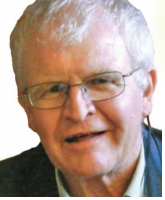Can we overcome the polarization that threatens our country?
I’ve written before that courage to change is a fundamental aspect of growing as a person and leader. Lately, I have been thinking about social change, especially as it applies to our politics and polarization.
In 2002, I finished six terms as a Republican state legislator, an experience I found challenging but also very satisfying. I especially loved the constituent work. Sometimes that meant getting intimately involved in people’s lives. For example, I helped some foster parents manage a complicated adoption. A woman wrote a gratifying letter to the editor after I intervened in her elderly mother’s insurance problem. My life was enriched by those experiences.
I was also excited about local legislative projects, creating Lake Tarleton State Park and the Bedell Bridge boat launch on the Connecticut River, as well as upgrades to the Glencliff Home for the Elderly. I made a lot of friendships, too, on both sides of the aisle. While we had our disagreements, I found nearly every representative and senator motivated by public service and open to ideas of others.
By 1998, though, I was noticing some not-so-positive changes. In a speech on the House floor, I said, “The level of civility among members has declined in recent years. This seems to be happening at all levels of government and, indeed, throughout society. We can show people a better way.”
In 2012, I was living in Kyiv, Ukraine, as country director for the Peace Corps when I heard a “This American Life” podcast titled, “Red State Blue State,” including a segment on divisiveness in the NH Legislature. My reaction was, “Yikes, are things getting this bad back home?”
I was struck by one man’s comment that his brother-in-law could still come to a family BBQ but, because he voted for Obama, he had to bring his own meat to grill. Was politics really having so much impact on families?
Ten years later, the problem is much worse. Rampant polarization is driven by declines in social capital, civic education, manners/kindness and basic conversation/interpersonal skills.
The authors of a 2018 study, “The Hidden Tribes of America,” found that, while only a third of Americans embrace the most extreme politics of the left and right, those perspectives dominate the national conversation.
“Polarization has become a business model,” they wrote. “Media executives have realized that they can drive clicks, likes, and views, and make money for themselves and their shareholders, by providing people with the most strident opinions.”
New York Times columnist David Brooks cites research that 60 percent of Americans said their neighbors were trustworthy two generations ago, but now only 33 percent do. “When a nation loses faith in each other,” he says, “the nation collapses. … Restoring trust in each other is the elemental task.”
In 2019, I joined Braver Angels, a national citizens movement that brings Americans together to bridge the partisan divide and strengthen our democratic republic. We seek ways past what our founder Bill Doherty describes as making someone’s policy positions a fundamental test of their humanity and integrity. Ezra Klein, also of The New York Times, writes, “We need to build a politics where one of our aims is the participation and respect we give to each other.”
In my last column, I wrote about the distressing events in Ukraine and leadership by President Zelensky. I wonder if Americans would come together to defend our country if it was under attack, or would we just bicker that it was the other political party’s fault?
I recently finished Cass Sunstein’s book, “How Change Happens.” He cites research that 49 percent of Republicans and 33 percent of Democrats would feel “displeased” if their child married someone outside their party — compared to only 5 percent and 4 percent in 1960. Despite what Sunstein describes as “serious adverse effects both in daily life and in the political domain,” he offers a possible way out: “If people live in accordance with norms they abhor, the circumstances are right for sudden change. People can be unleashed.”
Are you as distressed as I am by this growing problem? Are you willing to step up as a leader to lend your voice for change? Get involved with Braver Angels or other groups trying to address this challenge. The future of our children and our children’s children depends on it!
We each have an extraordinary opportunity to make a difference in people’s lives, including our own. Don’t underestimate your impact!
Douglass P. Teschner, founder of Growing Leadership LLC, can be reached at dteschner@Growing-LeadershipLLC.com.